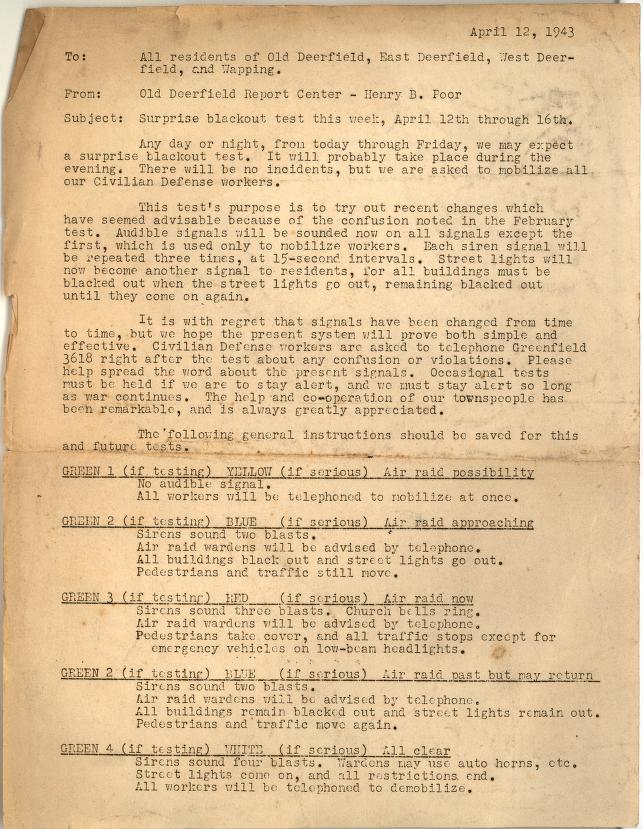




Advanced Search
| Online Collection |
|
|||||||||||||||||||||
|
Concerned about the threat of coastal enemy invasions, the government created the Civilian Air Patrol (CAP) to patrol the east coast with ships and small planes. In March of 1942, by military order, "blackouts" began, requiring that no rays of light be emitted on the eastern shore, and inland for 12-16 miles. Magazines offered suggestions on how to comply with the blackout in style. House and Garden magazine proclaimed "Bedrooms need not go into mourning," and "Make a blackout shade by seaming together two pieces of fabric, one black and one to match your curtain." Those who did not comply with blackout orders were subject to arrest. This is a blackout memo addressed to the residents of Deerfield, Massachusetts. It announced a surprise blackout test during the week of April 12-16, 1943 and announced that street lights were now added to the signaling system, in addition to sirens, in an ongoing attempt to make the system simpler and more effective. The street light system was designed to alert people to an air raid possibility; an approaching air raid; an air raid in progress; an air raid past, but with the possibility of a return; and an all clear.
|
WWII Blackout Memo Deerfield Residents
|
| |
Home | Online Collection | Things
To Do | Turns
Exhibit | Classroom | Chronologies | My
Collection
About This Site | Site Index | Site Search | Feedback


